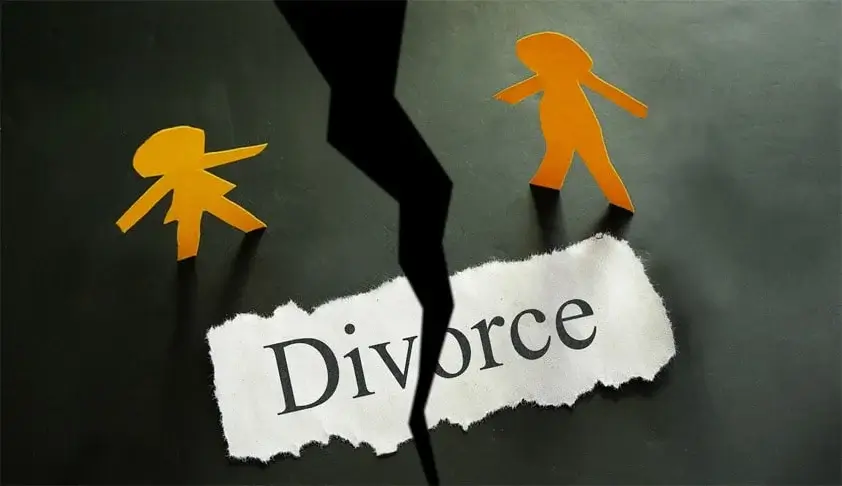Divorce is an emotionally charged process, often involving issues like child custody, financial disputes, and allegations of infidelity or dishonesty. While most divorce cases rely on open communication and legal representation, there are situations where things may become murky, and trust between the parties erodes. In such instances, a divorce case investigation may be necessary to uncover the truth, protect your legal interests, and ensure a fair outcome.
But how do you know if you need a private investigator for your divorce case? This blog will explore the telltale signs that may indicate it’s time to consider a professional investigation to safeguard your rights.
1. Suspicion of Infidelity
One of the most common reasons people consider a divorce case investigation is the suspicion of infidelity. If you believe your spouse is cheating but lack concrete evidence, an investigation can help you confirm or disprove your suspicions. While emotional turmoil is a valid concern, proving infidelity in some jurisdictions can also affect alimony, asset division, or custody arrangements.
Signs of infidelity that may warrant an investigation include:
- Changes in Behavior: Unexplained shifts in your spouse’s behavior, such as distancing themselves emotionally or physically, could be a red flag.
- Increased Secrecy: If your spouse suddenly becomes overly protective of their phone, computer, or social media accounts, it might indicate they’re hiding something.
- Frequent Absences: Unexplained or inconsistent reasons for being away from home for extended periods, such as late nights at work, sudden weekend trips, or disappearing during holidays, are common signs of cheating.
- Financial Changes: Secretive spending, unusual credit card charges, or sudden changes in bank accounts may indicate that your spouse is covering up an affair or other secretive behavior.
A divorce case investigation can provide crucial evidence, helping you make informed decisions moving forward.
2. Hidden Assets or Financial Deception
In some divorces, one spouse may attempt to conceal assets to avoid an equitable division during the settlement process. This can be especially problematic if one partner controls the finances or holds multiple bank accounts or investments that the other party is unaware of.
Signs that your spouse may be hiding assets include:
- Unexplained Drops in Income: If your spouse suddenly reports a lower income or claims financial difficulties, they might be underreporting their earnings.
- Sudden Transfers of Assets: Quick transfers of money to different accounts, large purchases made in someone else’s name, or unexpected business investments can indicate an attempt to hide funds.
- Ownership of Unknown Properties or Investments: Sometimes, one spouse might secretly invest in real estate, stocks, or offshore accounts without the other’s knowledge.
Divorce case investigation services can help track down hidden assets, ensuring an accurate financial picture is presented in court. Investigators use forensic accounting, surveillance, and financial audits to uncover discrepancies in a spouse’s reported assets and income, protecting the other party’s right to a fair division of marital property.
3. Concerns Over Child Custody and Safety
Child custody is often one of the most sensitive and contentious aspects of divorce. In cases where one parent is concerned about the child’s safety or well-being, a divorce case investigation may become necessary. This is particularly important if there are allegations of abuse, neglect, substance abuse, or if one parent is violating custody agreements.
Signs that may indicate the need for an investigation in child custody cases include:
- Unsafe Living Conditions: If you suspect that your child’s other parent is providing inadequate or dangerous living conditions, an investigator can gather evidence to support your claims.
- Substance Abuse: If you believe your ex-partner is abusing drugs or alcohol, this could pose a serious threat to your child’s well-being. Surveillance, witness testimony, or background checks can help establish patterns of dangerous behavior.
- Neglect or Abuse: Concerns over physical, emotional, or psychological abuse may justify an investigation to gather the necessary evidence to protect your child.
- Parental Alienation: If your spouse is trying to turn your children against you or is violating agreed-upon visitation rights, an investigation can help document these activities.
An investigator’s findings can provide strong evidence in court to help ensure your children’s safety and protect your parental rights.
4. Inconsistent or Secretive Behavior
Even if infidelity or financial deception isn’t present, significant changes in your spouse’s behavior may signal the need for a deeper investigation. If your spouse is acting secretive, evasive, or inconsistent, there might be hidden reasons that could impact your divorce case.
Look out for behaviors such as:
- Unexplained Time Gaps: If your spouse frequently disappears for hours or days without a clear explanation, this could suggest they’re hiding something.
- Inconsistent Stories: When stories about work, travel, or social engagements frequently change or don’t align, it may be worth investigating.
- New and Unfamiliar Friendships: Sudden friendships with people you don’t know, especially if they’re accompanied by unusual activities or late nights, could indicate your spouse is hiding aspects of their life from you.
Investigating this type of behavior can help you gain a clearer understanding of what’s really going on and, if necessary, use that information to strengthen your case.
5. Discrepancies in Legal Documents
During a divorce, both parties are required to disclose their finances, assets, and other relevant information to the court. If you suspect that your spouse’s legal documents—such as financial disclosures, tax returns, or property deeds—are inaccurate or incomplete, an investigation can help uncover the truth. Inaccurate or misleading information may indicate attempts to manipulate the divorce process, conceal assets, or gain an unfair advantage in the settlement.
Signs that legal documents may not be truthful include:
- Incomplete or Missing Information: If documents seem to leave out key financial data or other important details, this could be a sign of deception.
- Suspicious Timing of Changes: If your spouse has made significant changes to their financial records just before or during the divorce proceedings, they may be trying to skew the results in their favor.
- Untraceable Transactions: If you’re unable to trace funds or assets listed in legal documents, it may indicate that they’ve been transferred or hidden.
A divorce case investigation can uncover hidden facts and present a clearer, more truthful picture, which is crucial for ensuring a fair and just legal outcome.
6. Verifying a Spouse’s Employment or Income
A common tactic in contentious divorce cases is one spouse attempting to understate or misrepresent their income. This is often done to reduce alimony or child support payments. If you suspect your spouse is deliberately misrepresenting their employment status, salary, or financial situation, an investigation can help verify their claims.
Signs that your spouse may be hiding income or employment information include:
- Claiming Unemployment Despite Working: Your spouse may claim to be unemployed or underemployed to reduce financial obligations, while still earning income under the table or through other means.
- Failure to Provide Employment Records: If your spouse is reluctant to provide accurate pay stubs, tax returns, or other employment documentation, they may be hiding information.
- Lifestyle Mismatches: If your spouse maintains a lavish lifestyle but claims low or no income, this inconsistency could be a sign of hidden earnings.
Investigators can verify employment details, monitor business dealings, and identify income streams to ensure that all financial obligations are fairly assessed.
Conclusion
Divorce is a complex process that involves many emotional and financial aspects. If you suspect that your spouse is hiding assets, engaging in infidelity, putting your children at risk, or being dishonest about their finances, you may need a divorce case investigation to uncover the truth. By gathering evidence, verifying claims, and uncovering hidden behaviors, an investigation can provide the necessary information to protect your interests during the divorce proceedings.
In situations where trust is broken or suspicions run high, Eye Witness, a reliable detective agency based in Kolkata, provides professional divorce case investigation services to help uncover the truth. With their expertise, you can ensure that your rights are upheld and achieve a fair and just outcome during your divorce.

